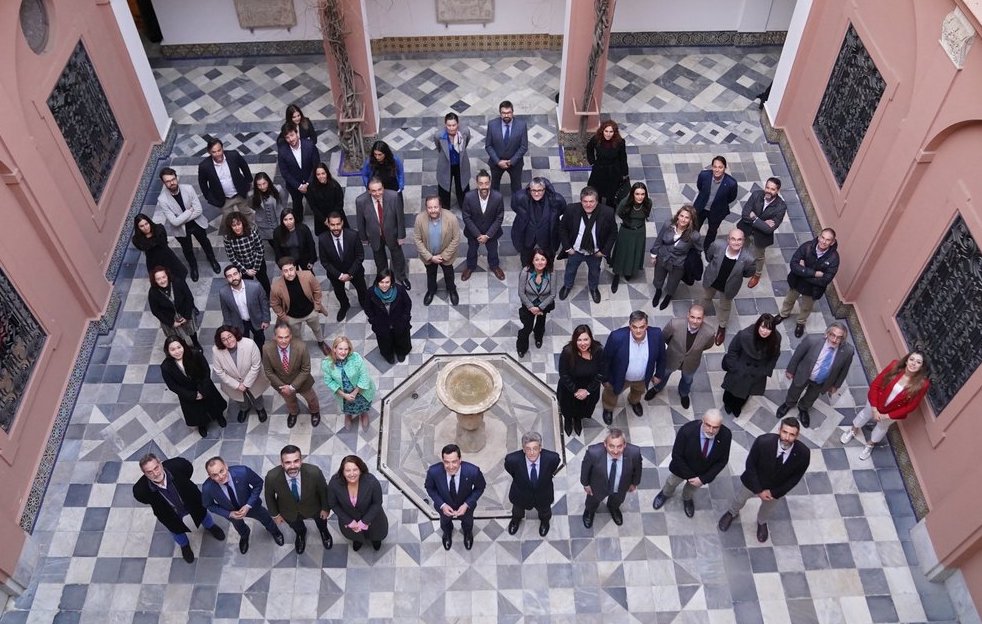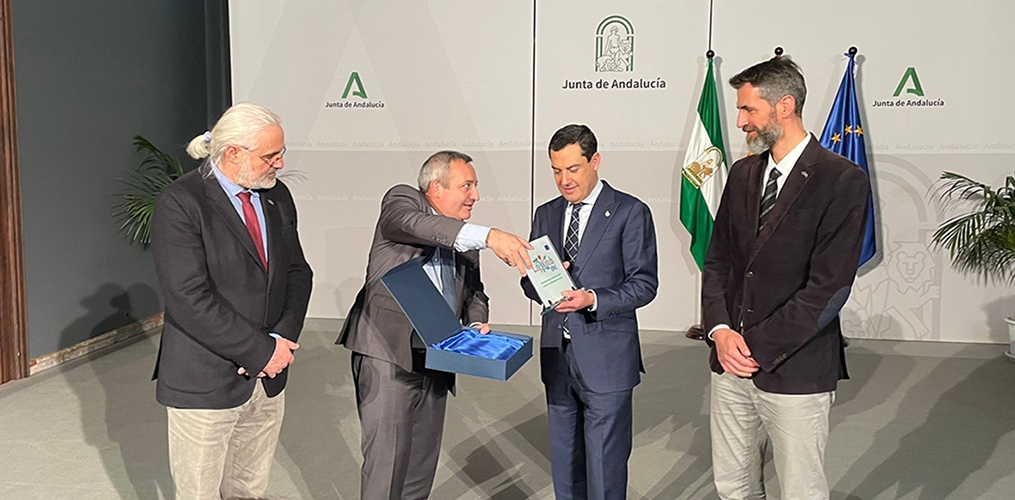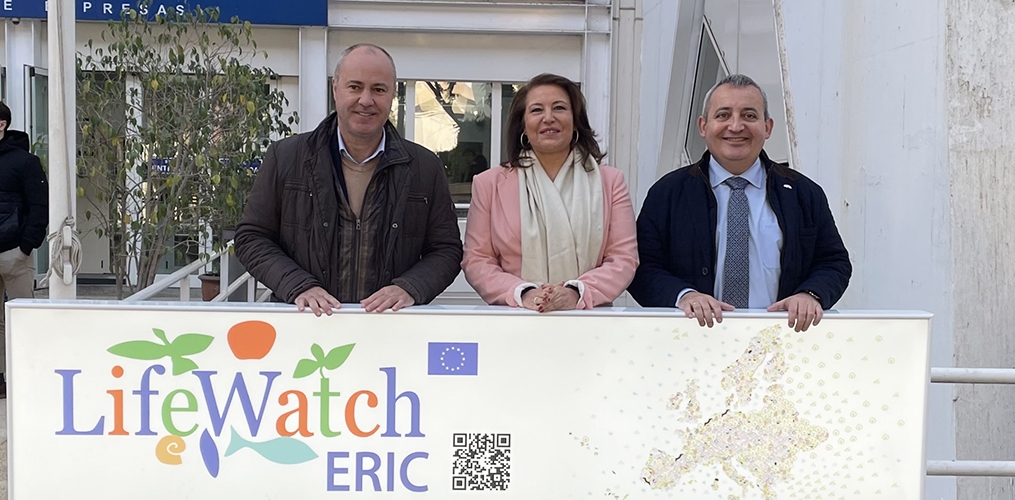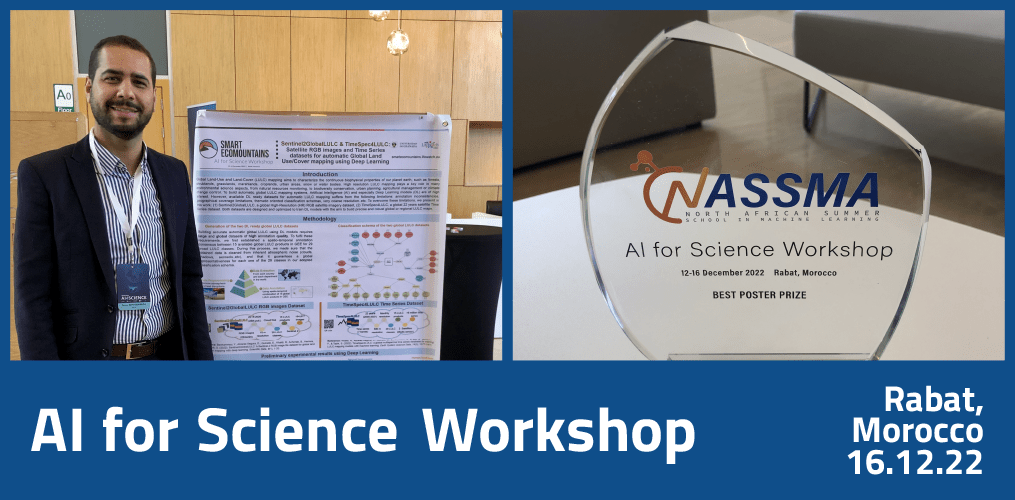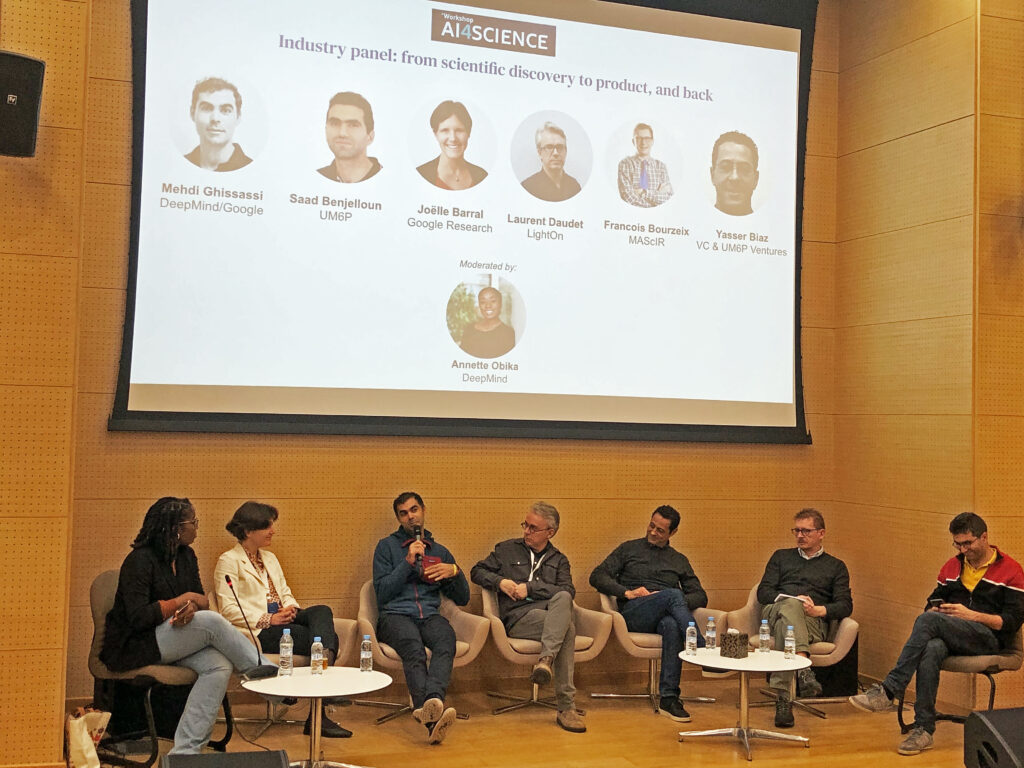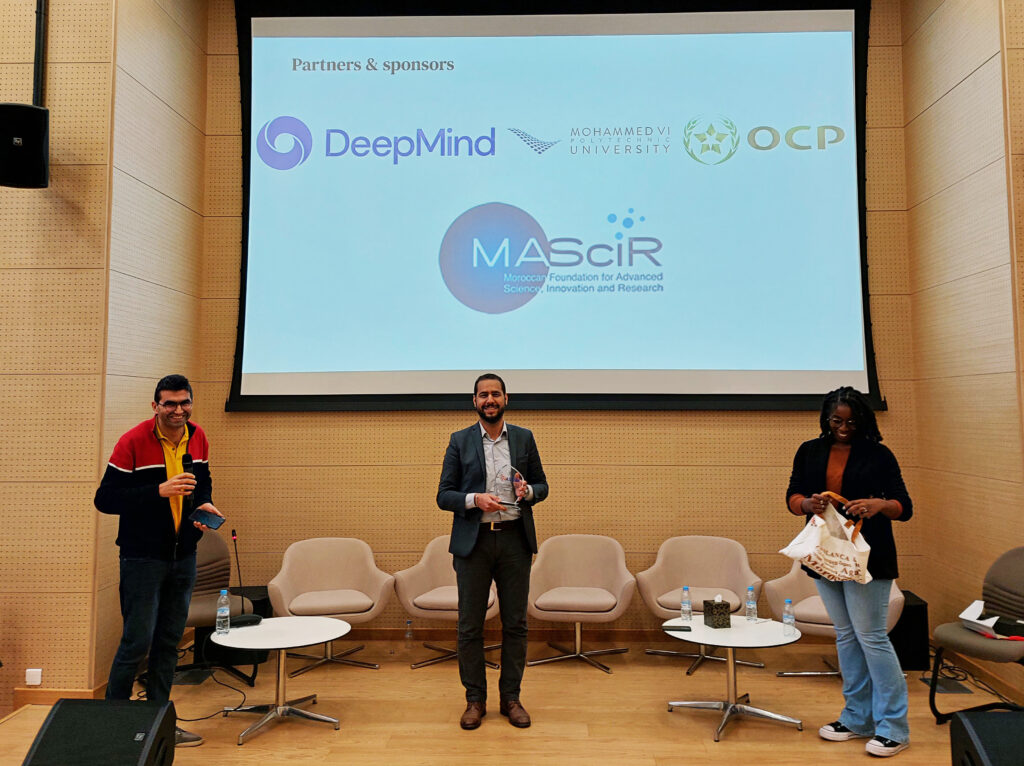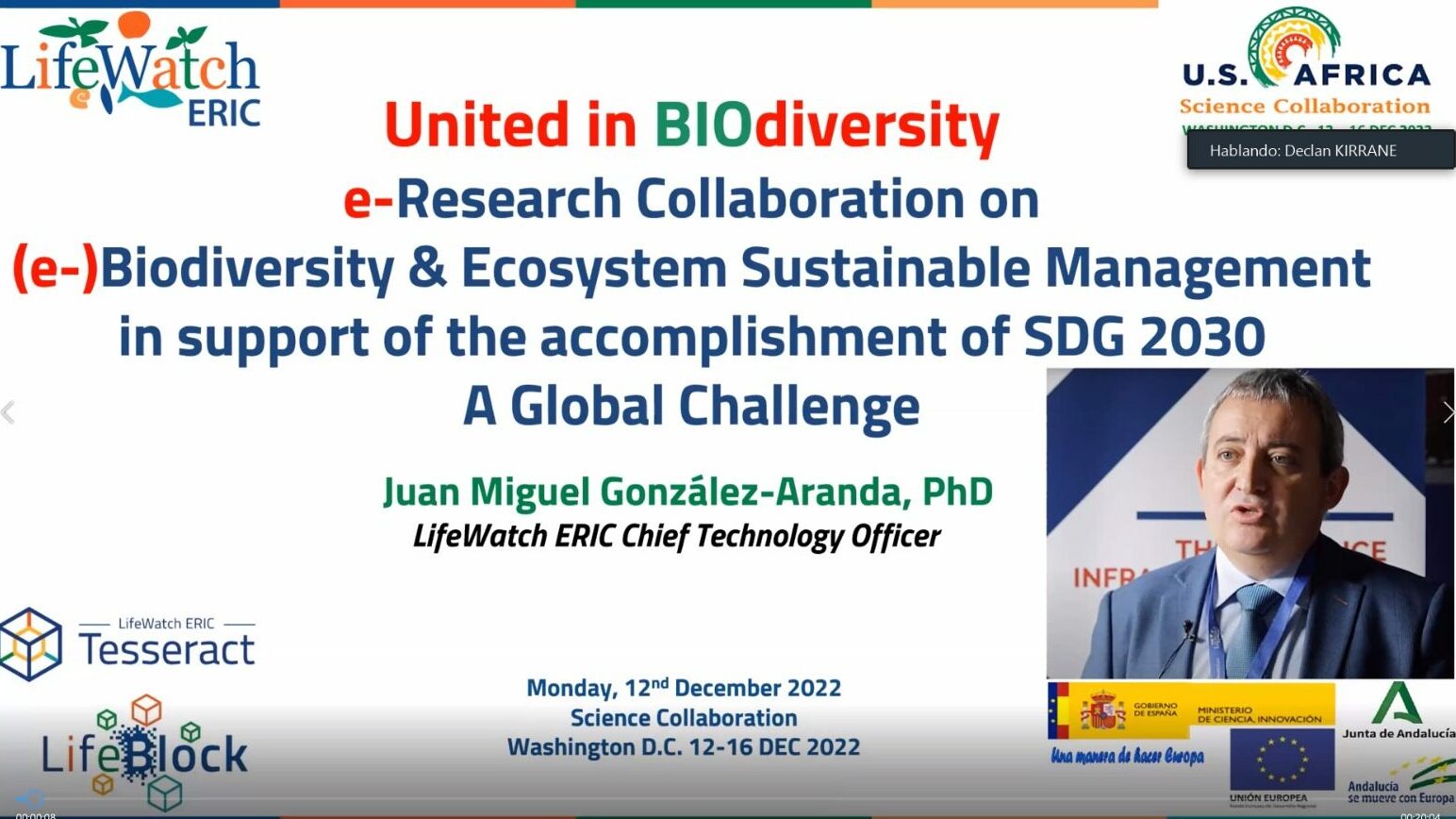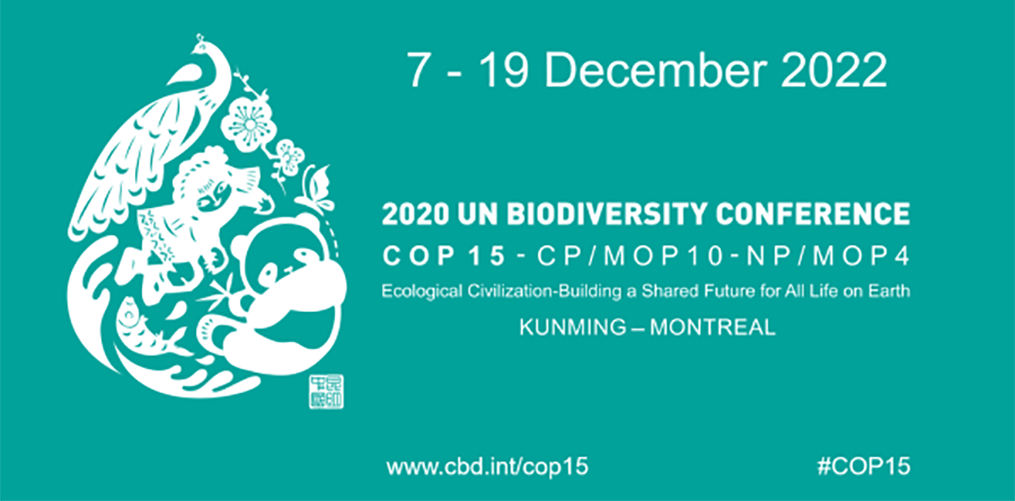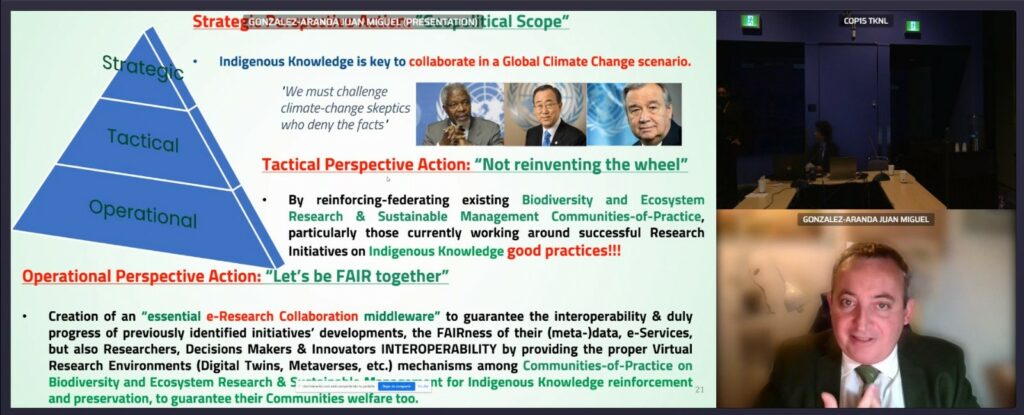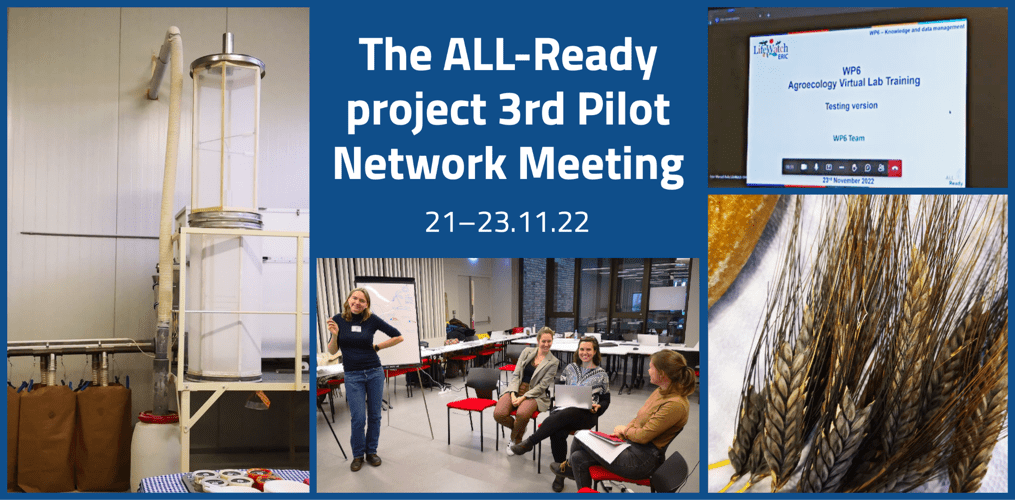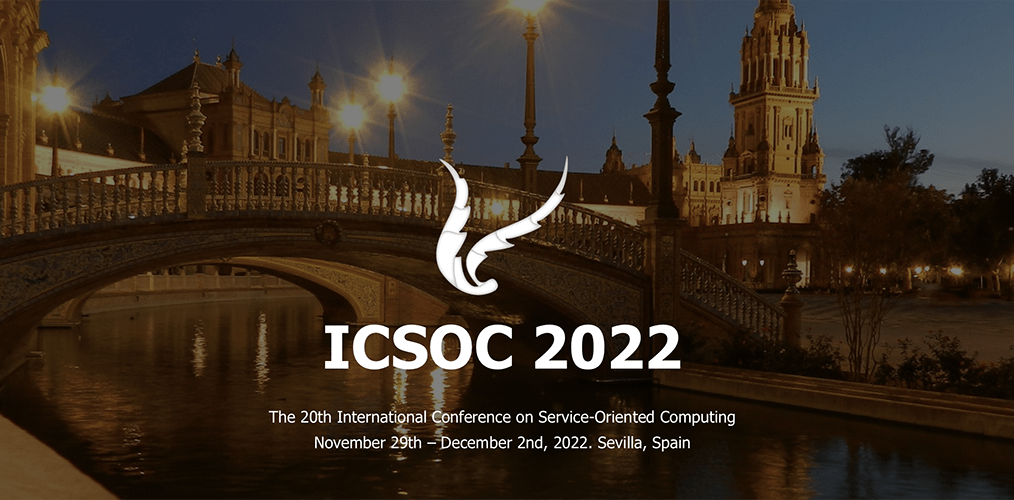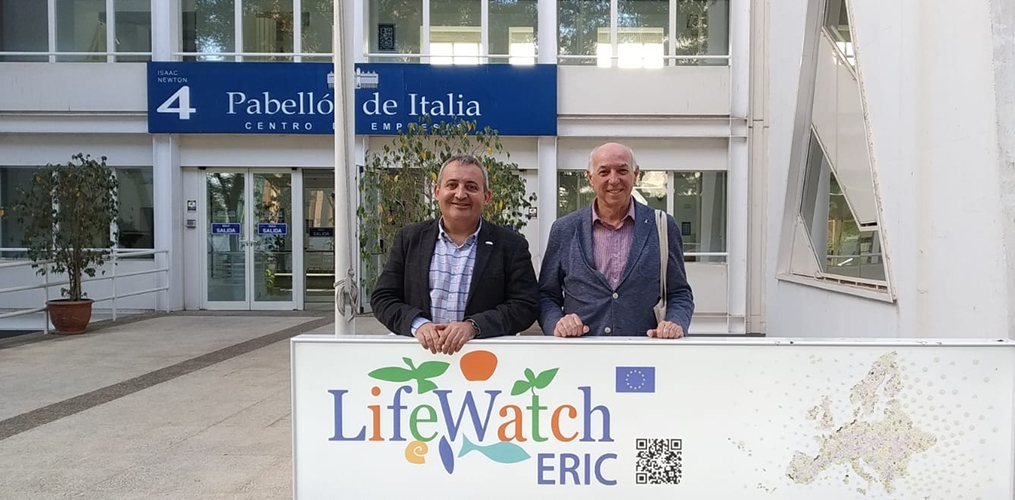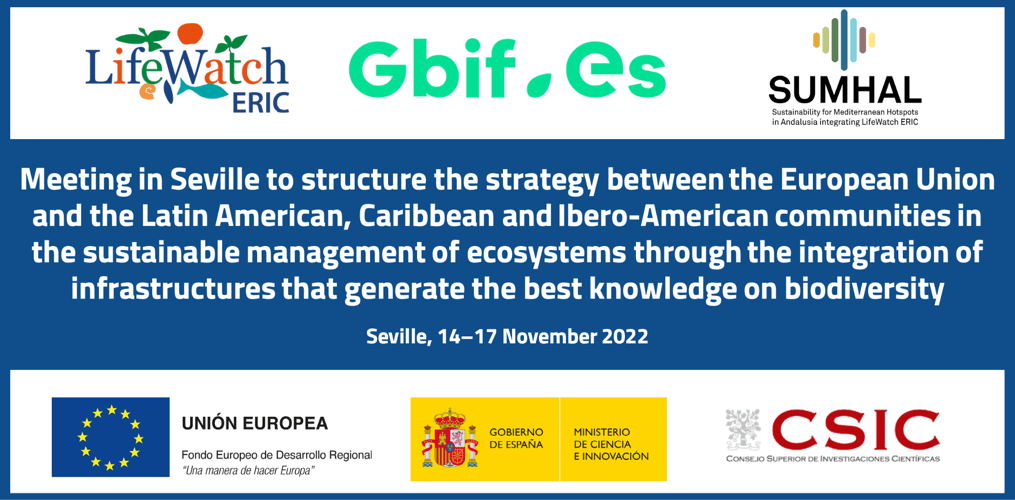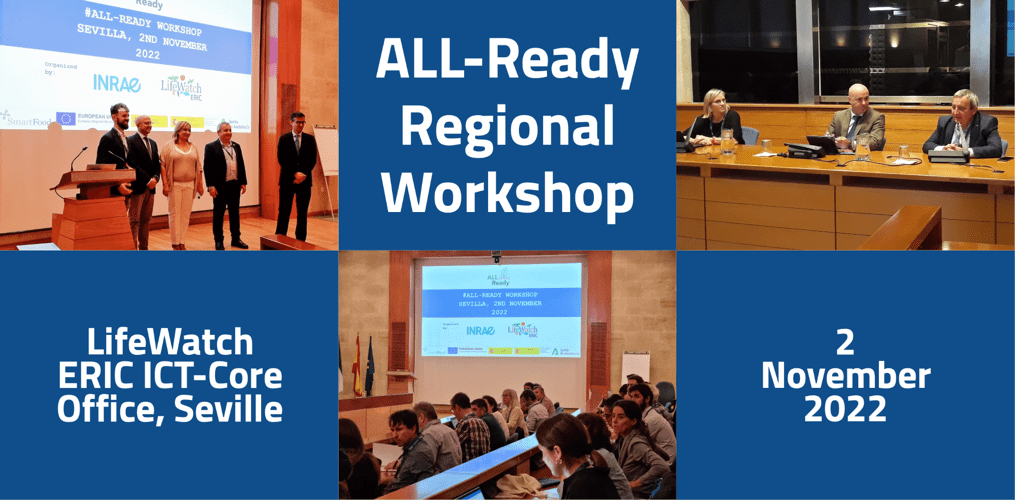On Thursday 2 February, directors and representatives of the LifeWatch ERIC Common Facilities in Seville were welcomed to the government office of the Andalusian president, Juan Manuel Moreno Bonilla. LifeWatch ERIC members were invited for an afternoon at the beautiful Palacio de San Telmo in Seville with the President, who described the infrastructure as an “invaluable ally” in the Green Revolution, which is being widely promoted in the region.
The President praised the infrastructure for its open science model, through which it can provide advanced digital analysis tools to stakeholders for the conservation and restoration of biodiversity and ecosystem services, highlighting the synergies between the infrastructure and the regional Ministries of Sustainability, Environment and Blue Economy and that of Agriculture, Fisheries, Water and Rural Development, whose respective ministers, Carmen Crespo, and Ramón Fernández-Pacheco, were both present for the occasion. He underlined how the government can make use of LifeWatch ERIC’s expertise in cutting-edge technologies such as AI in a number of ERDF projects, which rely on digitisation and innovation processes to generate environmental knowledge, in order to foster a culture of sustainability.
Good examples include the SmartFood project, in which LifeWatch ERIC is collaborating with Ministry of Agriculture and a number of partners to launch its first nanosatellite this year, which will offer useful information to helpadvance the sustainability of agriculture and fisheries, contributing to the digitisation of the primary sector. Another fine example is the Índalo project, which proposes building a technological infrastructure from which to monitor environmental changes in Andalusia in order to define the most suitable measures for resource management.
LifeWatch ERIC is grateful to the president and the Andalusian government for the gesture of recognition, and is honoured to provide tools and services which can contribute to the betterment of the environment in the region.
You can watch the President’s speech here (in Spanish).
